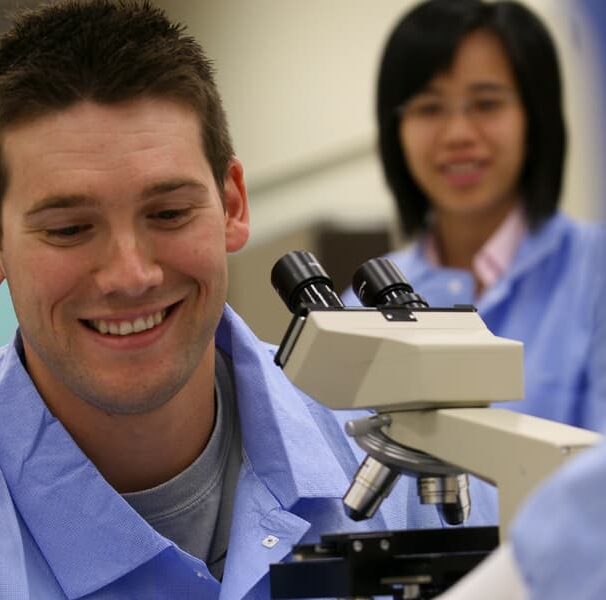HealthProviders DB is a comprehensive database of healthcare providers, including a complete directory of all laboratory management specialists and technologists.
Pathology Specialists/Technologist Healthcare Taxonomy Code 246QL0900X
As of today, the following are the total number of Laboratory Management Specialists & Technologists nationally, in your State, and near your location.
Select a State below to view the list by State. Additionally, you can narrow the list by city, among other options, from the Filter Panel, which you can open by clicking the vertical ellipses ⋮ in the upper right corner of the app.
Alaska – Alabama – Armed Forces Pacific – Arkansas – American Samoa – Arizona – California – Colorado – Connecticut – District of Columbia – Delaware – Florida – Federated States of Micronesia – Georgia – Guam – Hawaii – Iowa – Idaho – Illinois – Indiana – Kansas – Kentucky – Louisiana – Massachusetts – Maryland – Maine – Marshall Islands – Michigan – Minnesota – Missouri – Northern Mariana Islands – Mississippi – Montana – North Carolina – North Dakota – Nebraska – New Hampshire – New Jersey – New Mexico – Nevada – New York – Ohio – Oklahoma – Oregon – Pennsylvania – Puerto Rico – Palau – Rhode Island – South Carolina – South Dakota – Tennessee – Texas – Utah – Virginia – Virgin Islands – Vermont – Washington – Wisconsin – West Virginia – Wyoming
Medicare
The following are the total number of Laboratory Management Specialists & Technologists who accept Medicare in your State, the number who have opted out of Medicare, and the total number excluded from participation in Medicare nationwide.
The diagram below shows all the Laboratory Management Specialists & Technologists across the country, represented by blue bubbles. The larger the bubble, the greater the concentration of providers in that area. Red bubbles represent Medicare-excluded providers, with the larger bubbles indicating a higher percentage of excluded providers in that region. You can change the bubble size to be based on exclusions from the Size menu.
What do Laboratory Management Specialists & Technologists do?
Laboratory Management Specialists/Technologists perform both technical and managerial duties, with technologists primarily conducting diagnostic tests on patient samples, such as blood and tissue, analyzing the results for accuracy, and ensuring proper use of equipment.
At the same time, management specialists oversee laboratory operations, manage staff and budgets, develop policies, ensure regulatory compliance, and coordinate with other healthcare professionals to deliver efficient, high-quality laboratory services.
Laboratory Technologists
Perform Tests: Conduct a variety of tests on patient samples, including blood, urine, and tissue, to detect diseases, conditions, and other health issues.
Operate Equipment: Operate and maintain sophisticated laboratory equipment, including microscopes and cell counters.
Analyze & Interpret Data: Analyze test results, interpret the data, and document findings in patient records, ensuring the accuracy and reliability of results.
Work with Healthcare Professionals: Collaborate with physicians and other healthcare professionals to provide information that aids in patient care decisions.
Laboratory Management Specialists/Managers
Communicate & Coordinate: Communicate effectively with staff, stakeholders, and regulatory agencies, and collaborate to enhance workflows and improve overall laboratory services.
Oversee Operations: Manage day-to-day operations to ensure the laboratory runs efficiently and effectively.
Manage Personnel: Recruit, supervise, train, and mentor laboratory staff, including technicians, scientists, and researchers.
Ensure Quality & Compliance: Develop and implement policies and procedures to ensure adherence to safety, regulatory, and quality standards.
Manage Resources: Plan budgets, procure supplies and equipment, and maintain laboratory facilities.

